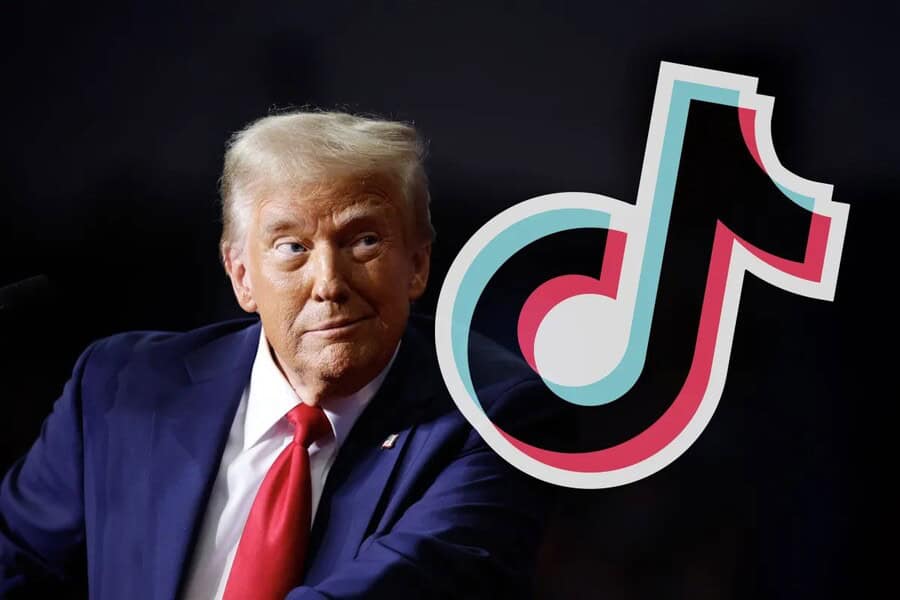In a surprising twist, Donald Trump’s recent presidential victory could offer an unexpected lifeline to TikTok, the embattled social media platform facing a looming federal ban. Just days before his inauguration on January 20, 2025, TikTok may be banned if its Chinese parent company, ByteDance, fails to complete a sale as mandated by legislation signed by President Biden. However, Trump’s return to the White House introduces a new set of dynamics that could potentially alter the fate of the popular app, signaling a dramatic policy shift from his previous stance.
During Trump’s first term, he was one of the most vocal proponents of a TikTok ban, citing concerns over national security and the potential for the Chinese Communist Party to access American user data. Despite no public evidence directly linking the CCP to TikTok data breaches, reports did confirm that ByteDance had accessed U.S. user information, adding fuel to bipartisan support for a ban. Trump’s aggressive campaign to force a sale of TikTok to a U.S. company was halted after he lost the 2020 election. Fast forward to 2024, and Trump’s rhetoric has changed drastically.
On his social media platform, Truth Social, Trump posted a surprising endorsement for TikTok, urging voters to support him if they want to “save TikTok in America.” This pivot from his previous stance highlights a new political strategy, possibly influenced by shifting interests and alliances. Trump’s reversal on TikTok may be driven by his animosity towards Meta (Facebook’s parent company), which he considers a primary rival. In several statements, Trump criticized Meta, labeling it an “enemy of the people,” suggesting that he views a TikTok ban as a move that would benefit Meta, a company he holds in contempt.
Behind this change in perspective may also be a deeper financial connection. Billionaire GOP donor Jeff Yass, who owns a significant stake in ByteDance, has been a major supporter of Trump’s campaign. Yass contributed over $96 million to Republican PACs in the recent election cycle, possibly influencing Trump’s newfound support for the platform. Yass’ investment interests in ByteDance could align with Trump’s softened stance, signaling a potential power play between political and corporate influences.
If ByteDance pursues a 90-day extension beyond the January deadline, Trump’s administration could find itself in control of TikTok’s fate. Even if the courts uphold the ban before Trump’s inauguration, his Justice Department could decide not to enforce it, effectively giving the platform a reprieve. This move would mark a significant departure from Biden’s tough stance on Chinese-owned tech companies and reflect Trump’s willingness to pivot if it aligns with his broader political agenda.
Meanwhile, the music industry is watching closely as Trump’s administration signals potential changes to AI regulation. Trump’s Silicon Valley supporters hope that his leadership will bring a “light-touch” regulatory approach, focusing on deregulating AI and reversing executive orders issued by Biden. Trump’s campaign received backing from tech investors who favor fewer restrictions on AI technologies, particularly in areas like generative AI, voice synthesis, and deepfakes.
One major hurdle for comprehensive AI regulation remains Congress. Federal legislation on AI has struggled to gain traction, with most bills stalling due to partisan divisions. Industry experts like Danielle Aguirre, the EVP and general counsel of the National Music Publishers’ Association (NMPA), have noted the difficulty of passing meaningful legislation in the current political climate. Aguirre emphasized that nearly all U.S. legislation requires unanimous consent, a rare feat given the polarization in Congress. This gridlock has left many AI-related issues unresolved, from copyright protection of AI-generated content to the ethical use of copyrighted material for training AI models.
As Trump prepares to take office, the future of AI regulation and social media platforms like TikTok hangs in the balance. With tech giants like Elon Musk potentially joining Trump’s administration, the direction of policy could shift rapidly. Musk, who owns X (formerly Twitter), has expressed criticism of strict AI and social media regulations but may find his views conflicting if it benefits his platform’s competition.
Trump’s evolving stance on TikTok and his likely approach to AI regulation highlight a significant pivot in his policy priorities, influenced by complex alliances and changing dynamics in the tech industry. The coming months will be crucial as the music industry, social media platforms, and tech investors anticipate how Trump’s administration will navigate these pressing issues, balancing deregulation with national security concerns.


